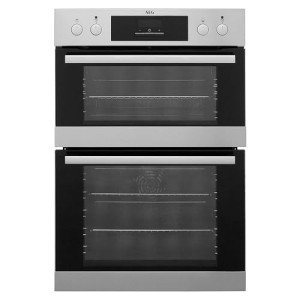5 Laws That Will Help The Built-In Oven Industry
페이지 정보

본문
Understanding Built-in Ovens and Hobs: The Perfect Kitchen Combination
As modern-day kitchens evolve, built-in appliances are ending up being progressively popular for both performance and looks. Among these appliances, built-in ovens and hobs stand apart as essential parts for any culinary lover or home cook. This short article explores the advantages, functions, and considerations surrounding built-in ovens and hobs. It likewise deals with common questions, offering a thorough guide to these kitchen essentials.
What are Built-in Ovens and Hobs?
Built-in ovens are integrated ovens for sale into kitchen cabinetry, developing a smooth, smooth look. They come in different types, consisting of standard, convection, and steam ovens built in, each dealing with different cooking methods. Hobs, on the other hand, are the cooking surfaces that incorporate with the kitchen counter top. They can be gas, electric, or induction, permitting cooks to select based on their cooking style and energy choice.

Advantages of Built-in Ovens and Hobs
- Space-Saving: Built-in designs maximize kitchen space by eliminating the need for freestanding systems, creating an open and airy environment.
- Visual Appeal: Their streamlined style adds to a contemporary, streamlined appearance in the kitchen.
- Improved Functionality: Built-in intergrated ovens often include advanced cooking innovation, hk.tiancaisq.com providing a range of features like self-cleaning and wise controls.
- Personalization: Manufacturers use a range of surfaces and styles, allowing house owners to customize their appliances to match their kitchen décor.
Types of Built-in Ovens
1. Traditional Ovens
Standard ovens utilize convected heat from the bottom and can be ideal for baking.
2. Convection Ovens
Stove have a fan that distributes hot air, ensuring even cooking. They lower cooking time and are perfect for roasting meats or vegetables.
3. Steam Ovens
Steam ovens utilize wet heat to cook food, preserving nutrients and flavors. They are becoming increasingly popular among health-conscious cooks.
4. Microwave Ovens
These ovens offer quick heating and cooking and serve various functions, from reheating leftovers to baking.
Types of Hobs
1. Gas Hobs
Gas hobs use gas or lp for cooking. They offer instant heat control, making them a preferred amongst professional chefs.
2. Electric Hobs
Electric hobs have strong or ceramic surfaces that heat up via electric coils. They are easy to tidy however may take longer to heat than gas designs.
3. Induction Hobs
Induction hobs utilize electro-magnetic energy to straight warm pots and pans, using rapid heating and energy performance. They cool off quickly and offer a safer cooking experience.
Factors to Consider When Choosing Built-in Ovens and Hobs
When selecting built-in ovens and hobs, a number of factors should be thought about:
1. Area Limitations
Measure the readily available space in your kitchen to make sure that the appliances will fit flawlessly into the kitchen cabinetry.
2. Cooking Style
Consider your cooking practices. If you often bake, a stove might be ideal. Meanwhile, induction hobs are great for safety and effectiveness.
3. Spending plan
Pricing varies considerably based upon features and brand names. Setting a spending plan assists narrow down the alternatives.
4. Energy Source
Identify whether you want gas or electric appliances. This decision can impact cooking performance and utility costs.
5. Visual appeals
Choose surfaces and styles that match your kitchen's style. Stainless-steel is a popular option for a modern appeal.
Comparison of Built-in Ovens and Hobs
| Feature | Built-in Oven | State-Of-The-Art Built In Ovens-in Hob |
|---|---|---|
| Type | Convection, steam, etc. | Gas, electric, induction |
| Cooking Versatility | High | Moderate to high |
| Cleaning up Ease | Differs by model | Typically simple to clean |
| Setup Style | integrated ovens in cabinets | Flush with counter top |
| Energy Efficiency | Varies by model | Induction normally most effective |
FAQs About Built-in Ovens and Hobs
1. Are built-in ovens more expensive than freestanding designs?
Yes, built-in ovens usually feature a greater cost tag due to their style and setup requirements. However, they often provide more sophisticated features.
2. Can I replace my existing freestanding oven with a built-in model?
Yes, it's possible to replace a freestanding oven with a built-in design, but you might need to make changes to your cabinets and kitchen layout.
3. What maintenance do built-in ovens and hobs require?
Regular cleaning is essential. Many built-in ovens featured self-cleaning features. It's likewise crucial to keep the hobs free of spills and grease.
4. Are induction hobs safe for households?
Induction hobs are considered more secure than gas or electric alternatives because they only heat up the pots and pans, decreasing the risk of burns or accidents.

5. How can I optimize the efficiency of my built-in oven and hob?
To maximize performance, constantly preheat the oven when required, use the correct size pots or pans on the hob, and think about using the residual heat from your hob after cooking.
Built-in ovens and hobs provide many benefits, making them popular choices for modern kitchen areas. Their space-saving designs, advanced functions, and aesthetic appeal contribute to their high demand. By thinking about elements like space, cooking design, and spending plan, homeowners can select the perfect combination of appliances that best fit their cooking needs. Whether through gas, electric, or induction hobs, and a variety of oven types, the ideal built-in kitchen appliances can enhance the cooking experience while raising the general visual of the kitchen.
- 이전글Auto parts cheap 25.05.20
- 다음글The Best Ovens Online Tricks To Change Your Life 25.05.20
댓글목록
등록된 댓글이 없습니다.








